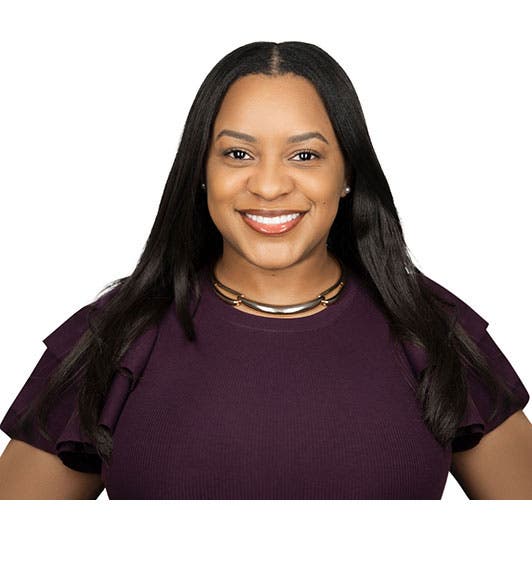Regenerate, Educate and Celebrate: 3 Key Lessons Learned from the 2022 American Public Health Association (APHA) Conference

It’s official: the 2022 American Public Health Association (APHA) Conference is one of the best conferences I have ever attended! As one of the newest members of the CloroxPro team and a first-time APHA attendee, I left feeling inspired, motivated, and committed to becoming a better ancestor — leaving the world safer, healthier, cleaner and better for future generations.
Massachusetts is a long-time leader in our nation’s healthcare (think: First state to mandate the small pox vaccination), so it was fitting that this year’s APHA conference — celebrating 150 Years of Creating the Healthiest Nation: Leading the Path Toward Equity — was in Boston. Throughout the four days of insightful educational sessions, several important topics were addressed—health equity, public health advocacy and policy, women’s health, and the future of public health. Although March 11th, 2023 will mark three years since the World Health Organization declared COVID-19 a pandemic, COVID-19 was still a very hot topic among this year’s masked and vaccinated APHA conference attendees and speakers.
As of December 12, 2022, nearly 100 million cases of COVID-19 have been reported in the U.S.1 As we enter another holiday season with rising COVID-19 cases, it begs the question, “what have we learned?” While the list is extensive, below are three key lessons APHA public health professionals learned from the COVID-19 pandemic, and how we can implement these in the cleaning industry.
Regenerate Public Trust
According to APHA panelists from the session “COVID-19 The Great Pandemic: What’s Next?”, the COVID-19 “Infodemic” contributed to existing public mistrust. The “Infodemic” is defined by “different forms of misinformation, disinformation, and other conspiracies and rumors” that delayed the public health response and led to mistrust in health authorities.2
So how do we rebuild public trust? One way is to promote understanding of risk and “spread facts, not fear,” a sentiment echoed by numerous APHA professionals. According to Faye Wong, MPH (APHA President, 2002), we must deliberately relay science-based information that will improve public knowledge and positively impact public health. For example, building public awareness and confidence in effective cleaning and disinfection strategies — like cleaning for health rather than for appearance — can be especially important in preventing the spread of illness and protecting human health.
Educate Public Health Professionals, Professional Cleaners, and the Community
During the session “Looking Back and Looking Forward: APHA Past Presidents Share Their Perspectives on Key Public Health Issues,” past APHA presidents emphasized public health education for all (e.g., medical professionals, cleaning staff, architects, state, and government officials, etc.). While medical and other public health professionals often have specific educational requirements for their roles, the same is not always true for cleaning professionals.
So how can we help educate professional cleaners? CloroxPro recognizes that professional cleaners are public health workers who deserve adequate training to ensure facilities are cleaned properly. From choosing the correct product for the job, to knowing when to clean versus disinfect, cleaning professionals must be knowledgeable, skilled, and trained to perform their jobs efficiently. The CloroxPro™ HealthyClean™ Certificate Program — Trained Specialist Course is a third party accredited, comprehensive and interactive on-demand course that helps ensure cleaning professionals get the knowledge and skills they need to clean for health effectively, efficiently and safely.
Celebrate Heroism in the Public Health Community
“The public health community doesn’t get celebrated when there are no disease outbreaks,” Dr. A. Caswell Evans, Jr., MPH (APHA President, 1995). While doctors are known for saving lives, rarely is that same tagline attributed to cleaning professionals. Year-round, janitorial staff and custodial workers are responsible for the sanitation and cleanliness of public buildings, schools, and businesses, and their importance becomes significantly greater during a pandemic. With an unprecedented impact on public health, the lingering long-term effects of COVID-19 reminds us of the importance of infection prevention and how grateful we should be to cleaning industry professionals who play a significant role in maintaining public health and safety daily.
So how can we celebrate heroism? Truthfully, a simple “thank you” goes a long way. The next time you see public health professionals or the less frequently acknowledged sanitation workers, be sure to express your appreciation for their continued service in keeping public spaces healthy.
Dr. Evans, Jr., said, “When we [public health professionals] are successful, nothing happens. We need to make our successes more visible.” Well, allow me to officially recognize the organizers of this year’s APHA conference, public health professionals, and all cleaning industry workers for making this year’s conference a tremendous success and a safe space to celebrate!
References
1. https://covid.cdc.gov/covid-data-tracker/#datatracker-home
2. https://www.who.int/health-topics/infodemic/the-covid-19-infodemic#tab=tab_1


